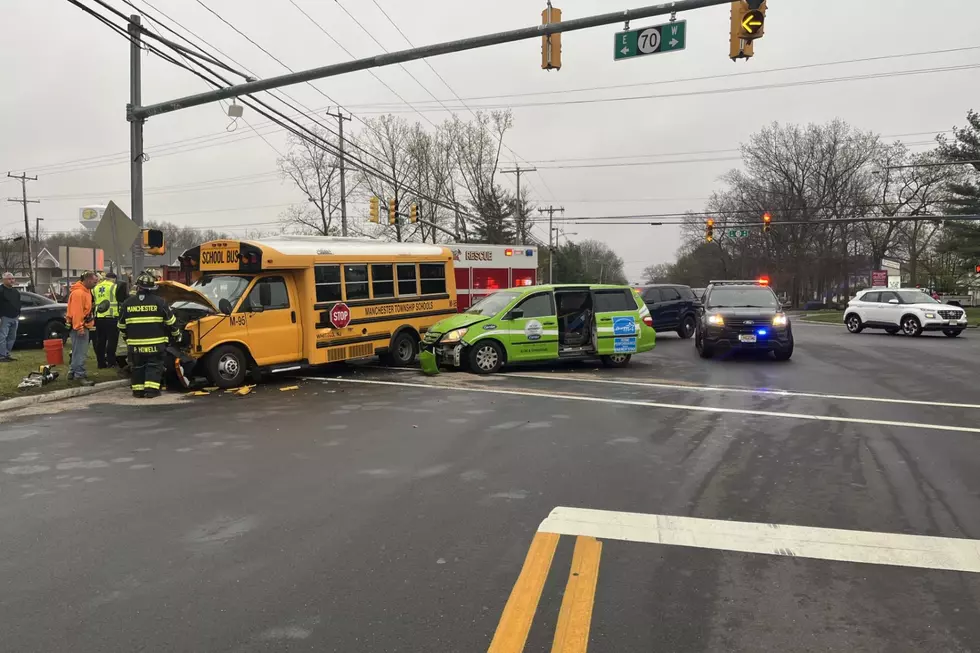![N.J. Assemblywoman Proposes Law to Encourage Minority Males to Become Teachers – Is This Necessary? [POLL]](http://townsquare.media/site/385/files/2013/09/classroom.jpg?w=980&q=75)
N.J. Assemblywoman Proposes Law to Encourage Minority Males to Become Teachers – Is This Necessary? [POLL]
Assemblywoman Pamela Lampitt of Camden is sponsoring a measure (A3195) that would encourage minority males to leave their private sector jobs and teach in some of the state’s failing school districts.
The rationale behind the legislation is to create for the students positive male role models they may not have in their home environment.
Sounds simple enough. Many households in these districts have females as the heads of households; and as such lack male role models.
So the assemblywoman would fill that need by having more minority men fill the teaching ranks.
In a way this mirrors efforts made by the State Police to hire more minorities since the percentage of minorities in the state doesn’t mirror the percentage of minorities in the patrol.
Putting aside the consideration as to whether or not these new teachers, cops, what have you, would be effective in their respective jobs.
As long as they belong to a certain ethnic group, that’s what the primary consideration should be, if I’m understanding the assemblywoman correctly.
The legislation, sponsored by Assemblywoman Pamela Lampitt (D-Camden), would create a pilot program to encourage African-American, Hispanic and Asian men to leave their private-sector jobs, earn alternate-route certification and teach in certain failing school districts.
Lampitt said her bill (A3195) could help the state address two crucial shortages by employing more minority men and also providing more quality teachers for disadvantaged schools.
“We know that a tremendous number of households these days are being run by females, and many by grandmothers,” Lampitt said. “Many of our young people don’t have significant male role models in their lives. Successful minority men who teach can be those role models.”
Last week, the bill cleared the Senate Education Committee. If it’s approved by the full Senate and signed into law, the bill would require the state Department of Education to select six failing school districts to participate in the pilot and monitor the program’s effectiveness.
Some educators say the pilot program sounds promising in theory, but in practice, having high-quality teachers in every classroom, regardless of race or gender, is the most effective way to turn around schools that struggle.
All of the male teachers at Roselle Park High School are white, and Principal Sarah Costa said she is eager to diversify her staff, but many of the minority candidates who apply for teaching positions at her school don’t have the required credentials, she said.
“If two teachers of different races are of equal caliber, of course I would like to bring in more minorities to teach our growing minority population,” said Costa, whose district’s disadvantaged student population has increased sharply in recent years. “Ultimately, I hire the best person for the job.”
Costa also said she is skeptical of teachers who come to the profession late in their careers and get certified through alternate routes. Many of those teachers struggle to control their classrooms, Costa said.
“They may be experts in their fields, but most are not experts in classroom management,” Costa said. “Either you have a natural knack for showing authority in a loving, caring way, or you don’t.”
Couple this with the proposal that the state is going to require students who wish to become teachers to maintain a B average in college; and it sounds as though the assemblywoman’s bill could very well be DOA.
If the assemblywoman wanted to encourage minority men to consider teaching, it should happen while in college, demonstrating the necessary skills and knowledge to become effective teachers.
For now the best course of action would be for administrators in these districts to hire the most effective teachers possible, regardless of background.
Should there be a law encouraging minority males to become teachers in struggling school districts?
More From New Jersey 101.5 FM









